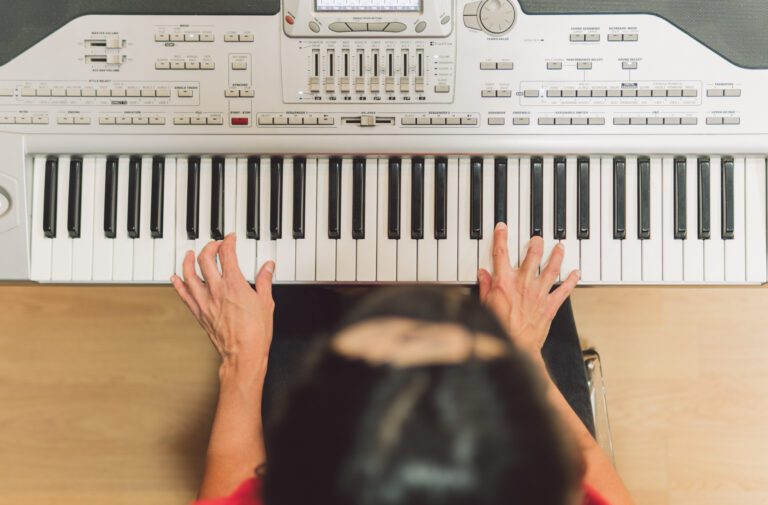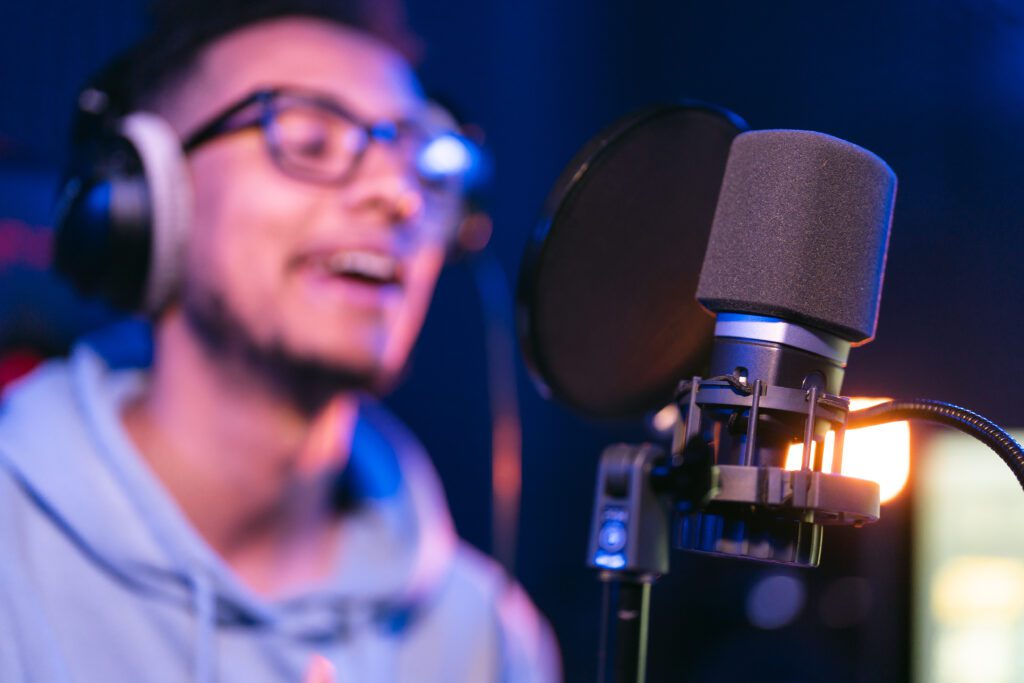Why Some People Are Born with Perfect Pitch
From the very first moment a baby hears their mother’s lullaby or the faint rhythm of nature’s melodies, their brain begins a lifelong relationship with sound. Among the many fascinating abilities humans can develop in this connection with music, one of the most intriguing is perfect pitch. Often referred to as absolute pitch, this rare auditory phenomenon allows individuals to identify or recreate a musical note without the need for a reference tone. They can hear a car horn, the hum of a refrigerator, or a single note on a piano and instantly know it’s a C#, A-flat, or any other specific pitch. While many admire this ability as a musical superpower, the deeper question is—why are some people born with perfect pitch?
What Is Perfect Pitch, Really?
Perfect pitch isn’t about being a better musician—it’s about being able to name or produce a note without hearing another one first. For example, if someone strikes a note on the piano and you immediately recognize it as an F# without any external aid, that’s perfect pitch. Some can even sing the note accurately without hearing it beforehand. This innate skill has fascinated musicologists, educators, scientists, and everyday listeners alike. But is it something you’re born with, or can it be learned?
Nature or Nurture: The Ongoing Debate

Scientists, educators, and musicians have long explored the mystery behind perfect pitch, attempting to understand whether it is a matter of nature, nurture, or a complex blend of both. The conversation often begins with genetics. Studies have shown that there appears to be a hereditary component to perfect pitch. In many cases, individuals with perfect pitch have family members who also display a strong aptitude for music or share the same ability. However, genetics alone cannot explain the phenomenon entirely. Identical twins, who share 100% of their genes, may differ in pitch recognition skills if their early musical environment is not the same.
What researchers consistently find is that early musical training plays a significant role. Most people who develop perfect pitch begin their musical education before the age of six. During this critical developmental window, a child’s brain is incredibly malleable. Exposure to structured musical sounds, particularly through instruments like the piano or violin, helps form strong neural pathways between auditory input and cognitive labeling. This early start doesn’t guarantee perfect pitch, but it dramatically increases the chances, especially when paired with deliberate training and repetition.
The Role of Language

An intriguing twist in this story is the role of language. Studies on tonal languages, like Mandarin and Vietnamese, show that speakers of these languages are more likely to develop perfect pitch, possibly due to the emphasis placed on subtle pitch differences in everyday communication. In tonal languages, pitch can change the meaning of a word entirely. This linguistic sensitivity may prime the brain for pitch recognition in music as well.
Brain Differences in People with Perfect Pitch
Interestingly, modern neuroscience provides even more fascinating insight. Brain imaging studies have found structural differences in the auditory cortex of people with perfect pitch. These individuals often show increased activity in the left planum temporale, a region associated with processing sound. Some theories suggest that perfect pitch may not just be a musical ability but also tied to broader cognitive functions like memory, categorization, and sensory perception.
Moreover, it’s been found that those with perfect pitch often associate specific pitches with colors, emotions, or even memories. It’s not just an ear skill—it’s a whole-brain experience.
Myths and Misconceptions

There are quite a few myths surrounding perfect pitch. One popular belief is that if you don’t develop it as a child, it’s too late. Another is that having perfect pitch means you’ll automatically be a musical genius. But the truth is more nuanced. While early childhood is certainly the ideal window, recent research suggests adults can also improve their pitch recognition skills with intensive training. And while perfect pitch is a cool skill to have, it doesn’t guarantee creativity, rhythm, or emotional expression—all essential parts of being a good musician.
Does Perfect Pitch Make You a Better Musician?
Despite the awe that surrounds perfect pitch, it’s important to acknowledge that this ability doesn’t automatically make someone a great musician. While it certainly helps with activities such as tuning instruments, sight-singing, or transcribing melodies by ear, musicality also involves rhythm, emotion, dynamics, interpretation, and creativity. Some renowned composers like Mozart and Beethoven had perfect pitch, but many other legendary artists didn’t. In fact, relative pitch—the ability to identify intervals and chords by comparing notes—is far more valuable in ensemble settings and real-world musical performances.
Perfect Pitch in Music Education
At The Mystic Keys, our approach to teaching music embraces both the technical and emotional aspects of musicianship. While we recognize and support students who may show signs of perfect pitch, our primary focus is on building a strong foundation of musical understanding and expression. We believe that music is not only a science but also an art. It’s not about being born with a gift but about nurturing potential through consistent practice, personalized guidance, and a deep love for sound.
Our one-on-one lessons provide space for every student, whether they’re prodigies or passionate learners, to grow in their unique musical journey. We teach students how to develop strong relative pitch, train their ear, and use music theory to navigate complex compositions. This helps bridge the gap between natural ability and learned skill.
Historical Context: A Tuning Fork’s Tale

Perfect pitch also has cultural and historical contexts. In Western music history, the concept was less emphasized before the standardization of tuning. A440 Hz (the note A above middle C tuned to 440 cycles per second) only became a global tuning standard in the 20th century. Before that, tuning varied widely by region, composer, and instrument. This means that absolute pitch identification wasn’t always a consistent skill to develop. In modern times, however, with standard pitch becoming the norm, the idea of identifying specific notes has become more relevant—and, therefore, more recognizable as a unique ability.
Can Adults Learn Perfect Pitch?
One common question among students and parents is whether perfect pitch can be learned later in life. While some researchers argue that the critical window for developing this skill closes around age six or seven, others are more optimistic. Recent experiments using computer-based ear training software and immersive pitch exposure have shown that even adults can make significant improvements in pitch identification with practice. These breakthroughs suggest that perfect pitch might not be entirely exclusive to the early years but rather that earlier learning yields faster, more natural results.
The key here is consistency and a genuine curiosity. Music, like any language, can be learned if approached with dedication. Adults may not develop the instinctual speed of a child with perfect pitch, but they can certainly train their ear to reach impressive levels of accuracy.
How to Tell If You or Your Child Has Perfect Pitch
Some signs of perfect pitch include:
- Instantly naming notes played on any instrument
- Being annoyed or unsettled by out-of-tune instruments
- Accurately singing a note without reference
- Associating colors or feelings with specific pitches
Beyond the Pitch: The Bigger Picture

As educators, we see firsthand the incredible power of early exposure, consistent practice, and guided exploration. At The Mystic Keys, we encourage parents to introduce their children to music as early as possible—not necessarily to create prodigies, but to open a world of creativity, discipline, and joy. Whether a child develops perfect pitch or not, what truly matters is the ability to listen deeply, understand patterns, and express emotions through sound.
Our experienced instructors understand that no two learners are the same, and we create customized lesson plans that match each student’s pace, interests, and goals. Whether it’s learning to play the piano, guitar, vocals, or music theory, our mission is to build confident musicians who love what they do.
Conclusion: Born with It or Built by It?
In the end, perfect pitch is a fascinating phenomenon—part science, part mystery, and part magic. While not everyone is born with it, the love of music is something that can be cultivated in every heart. Whether you can identify an F# out of thin air or simply enjoy the beauty of a melody, you are part of a timeless tradition of listening, learning, and sharing sound.
At The Mystic Keys, we celebrate every student’s musical story, perfect pitch or not, and help them unlock the incredible power of their own musical voice.
Want to learn Music in detail? Enroll in our Western Vocal Lessons Online and explore the fascinating world of music.
To learn more about how we nurture musical excellence through one-on-one lessons, personalized feedback, and a community of passionate learners, visit us at The Mystic Keys Let’s explore the music within you.
Related Blogs
Confidence isn’t something you’re simply born with — it’s something you build. And one of the most powerful, rewarding, and creative ways to develop self-confidence is by learning to play a musical instrument.
The quest for effective music to help you study techniques has led many students to incorporate music into their routines. Study playlists, often filled with soothing or instrumental tracks, are popular tools aimed at enhancing focus and productivity.








